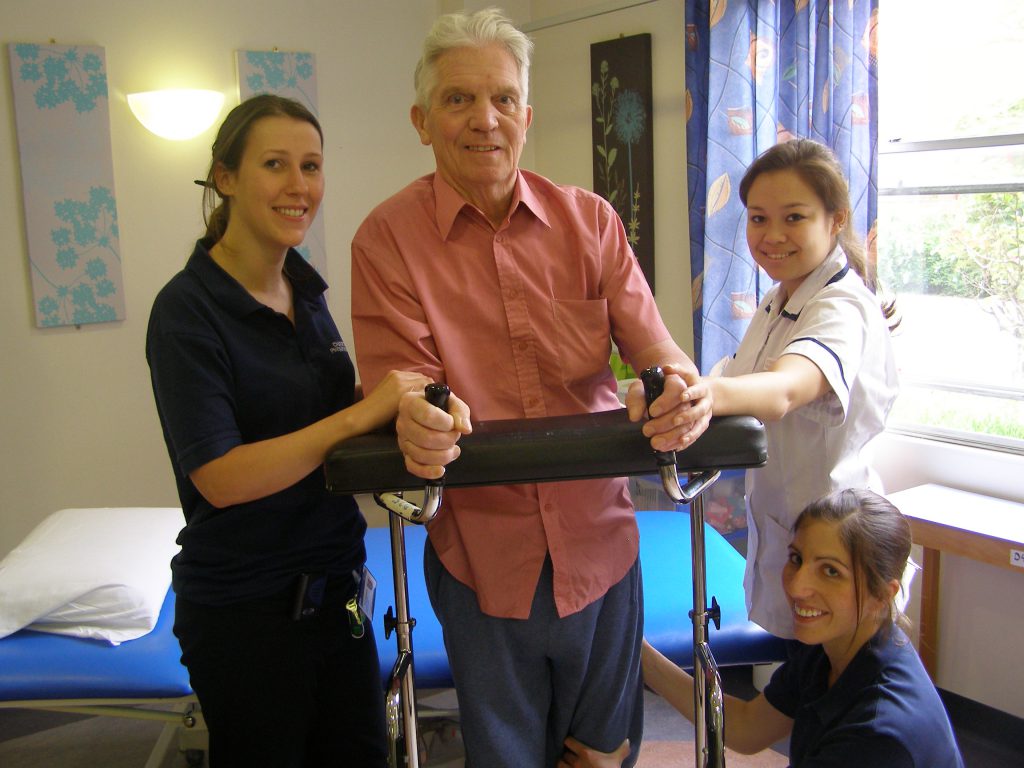On this page
Our specialist stroke unit provides high quality care for patients who have had a stroke or a mini stroke (transient ischaemic attack TIA) in Sandwell and West Birmingham.
Specialist stroke units with a larger number of skilled doctors, nurses and therapy staff give patients a better chance of making a full recovery after a stroke.
The benefits of our stroke unit include:
- All stoke patients are admitted directly to a stroke bed, with imaging enroute to the ward, within four hours of arriving in hospital
- All stroke patients are assessed daily by a specialist consultant clinician for stroke
- 50 per cent of stroke patients will have a CT scan within an hour of arrival

What is a stroke?
A stroke is a condition where the blood supply to part of the brain has been cut off.
A mini stroke, is a condition where the blood supply to part of the brain has temporarily been disrupted.
Strokes are a medical emergency and prompt treatment is essential because the sooner a person receives treatment for a stroke, the less damage is likely to happen.
Symptoms of stroke
The main symptoms of stroke can be remembered with the word FAST: Face-Arms-Speech-Time.
- Face – the face may have dropped on one side, the person may not be able to smile or their mouth or eye may have dropped
- Arms – the person with suspected stroke may not be able to lift one or both arms and keep them there because of arm weakness or numbness
- Speech – their speech may be slurred or garbled, or the person may not be able to talk at all despite appearing to be awake
- Time – it is time to dial 999 immediately if you see any of these signs or symptoms
Services
Stroke wards
People who have had a stroke are cared for in our Acute Stroke and Neurology Unit at the Midland Metropolitan University Hospital.
The acute ward
The acute ward is where we care for people in the first few days after their stroke, while they are most unwell. On this ward the patients will be assessed by a specialist stroke consultant each day. Patients will also be cared for and supported by nurses, health care assistants, physiotherapist, speech and language therapists, psychologists, dietitians and occupational therapists.
Patients can stay on the acute ward until they are medically optimised. They will then either be ready to go home or move to the rehabilitation ward if they need further support before they can return home safely.
The rehabilitation ward
The rehabilitation ward is where people who have had a stroke but are not safe to go home yet, can stay for further rehabilitation. Rehabilitation involves helping people to restore some of their independence with movement and daily activities. Patients may stay for up to 21 days on the rehabilitation ward, but many are able to go home much sooner than this.
On the rehabilitation ward our patients can receive support from the specialist rehabilitation team which is made up of nurses, physiotherapists, occupational therapists, speech and language therapists and psychologists.
Community and follow-up services
When patients are getting ready to go home from hospital we will talk to them and their family about any continuing rehabilitation or support they may need at home, and will arrange this. The hospital team works closely with community nursing and therapy teams to make sure patients can be discharged from hospital safely, as soon as possible, with the support they need.
After leaving hospital, our stroke patients can have support from:
- Community nurses
- Social workers
- Occupational therapists
- Physiotherapists
Patients who live in Sandwell can receive support from the integrated community stroke service (ICSS), who continue the stroke rehabilitation within patients own homes.
Patient Information
Contacts
Stroke wards:
0121 507 3366
0121 507 3271
To contact a secretary within the stroke team, call switchboard: 0121 554 3801
The Stroke Association
- Helpline: 0303 3033 100 (Monday to Friday, 9am – 5pm)
- Email: info@stroke.org.uk
For more information about disabled access for this service


Leave a Comment